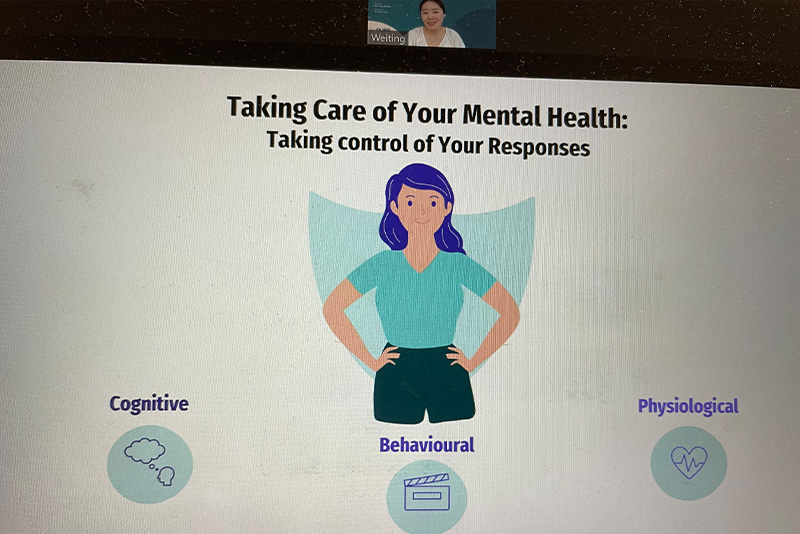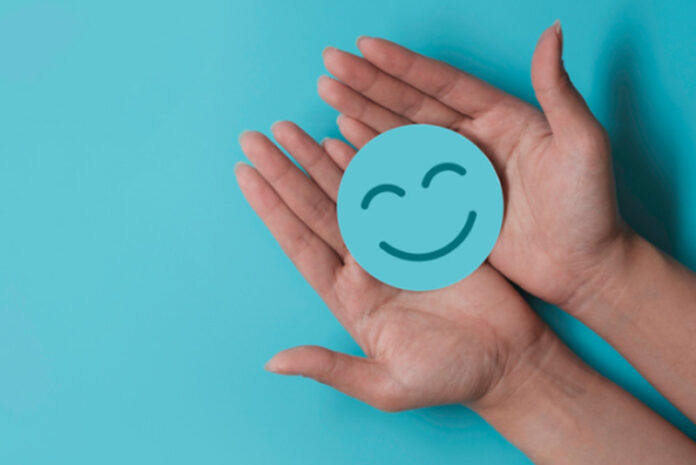While the majority of us might consider online shopping or planning a fun-filled day over the weekend as ways to mentally recharge, they might not be as effective, says psychologist Ms Zeng Weiting who recommends a relaxation technique that is more immediate. For instance, one could look at the trees by staring out of the window or if possible, find a comfortable position followed by closing one’s eyes and focus on breathing in and out deeply for two minutes.
Organised by the Intellectual Pursuit & Lifelong Learning Sub-Committee (IPLL), there were 80 signups to the “Taking Care of our Mental Health during COVID-19” webinar held on 19 January 2022 with Ms Zeng as the speaker and IPLL member Mr Alan Choo as moderator. The lunch time session was highly interactive with interesting quizzes and quick polls to the audience on the common myths about mental health and ways to build mental resilience.

During the one-hour talk, Ms Zeng shared anecdotes faced by her clients, for instance one of them faced anxiety issues and was worried about the future because of the pandemic. After Ms Zeng checked with the client about his family background, she found out that as a child, his family had encountered difficulties in making ends meet. Ms Zeng cited the example to illustrate how the individual’s vulnerability to stress could arise due to one’s past experience.
Stressors From The Pandemic
Before the pandemic, one common cause of stress is one’s competence in one’s job. During the pandemic, the top three stressors encountered among 1,000 interviewees involved in an IMH study, were related to health, finances and family such as loved ones being infected with COVID-19; financial loss, and unemployment. These resonated well with the audience who mostly picked “safety and security” in an online poll during the webinar.
Ms Zeng explained that stress symptoms manifest themselves as headaches, mental fatigue, heightened alertness; muscle tension, body aches, lethargy; as well as heart palpitation, chest tightness and breathing difficulties. In terms of behavioural symptoms, one might experience changes in appetite, sleep, social interactions; avoidance of duties or responsibilities and addictive behaviours; and nervous behaviours such as irritability, impatience and being fidgety.
A good way to shore up on one’s mental resilience is to cultivate hobbies. In another poll, the audience cited walking, playing suduko, meditation, adequate sleep, helping others as ways to do so.
Such tips are good reminders to us on the importance of recharging our mental batteries and will certainly be handy – with or without an ongoing pandemic. For support, one could also approach medical professionals such as the general practitioner or call the helplines.







